
Find Help
More Items From Ergsy search
-

Are there any lifestyle changes that can help reduce the risk of Alzheimer's?
Relevance: 100%
-

Can lifestyle changes help reduce bowel cancer risk?
Relevance: 68%
-
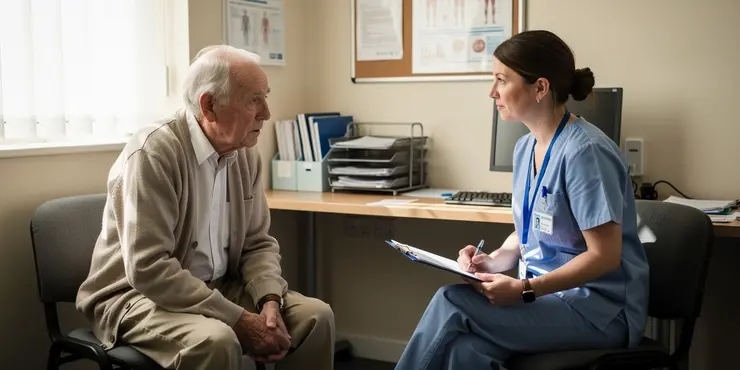
Who is at risk of developing Alzheimer's disease?
Relevance: 67%
-

Can lifestyle changes during menopause help reduce dementia risk?
Relevance: 65%
-

What is Alzheimer's disease?
Relevance: 60%
-
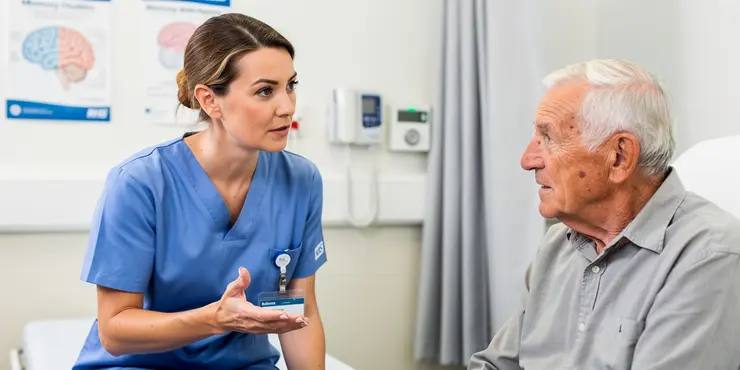
What causes Alzheimer's disease?
Relevance: 59%
-

Can lifestyle changes reduce the need for medication for heart disease prevention?
Relevance: 57%
-

Can Alzheimer's disease be prevented?
Relevance: 56%
-

What role does genetics play in Alzheimer's disease?
Relevance: 51%
-

What lifestyle changes can help lower the risk of bowel cancer?
Relevance: 51%
-

How is Alzheimer's disease diagnosed?
Relevance: 50%
-

How common is Alzheimer's disease in the UK?
Relevance: 50%
-
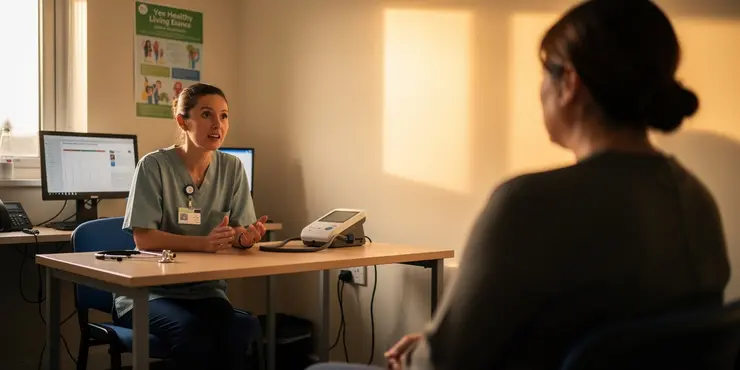
What lifestyle changes can help manage thrombosis risk?
Relevance: 49%
-

What are the stages of Alzheimer's disease?
Relevance: 49%
-

What treatments are available for Alzheimer's disease?
Relevance: 47%
-
What lifestyle changes can lower my child's risk of type 1 diabetes?
Relevance: 47%
-

Can lifestyle changes help prevent testicular cancer?
Relevance: 46%
-

What are the symptoms of Alzheimer's disease?
Relevance: 46%
-
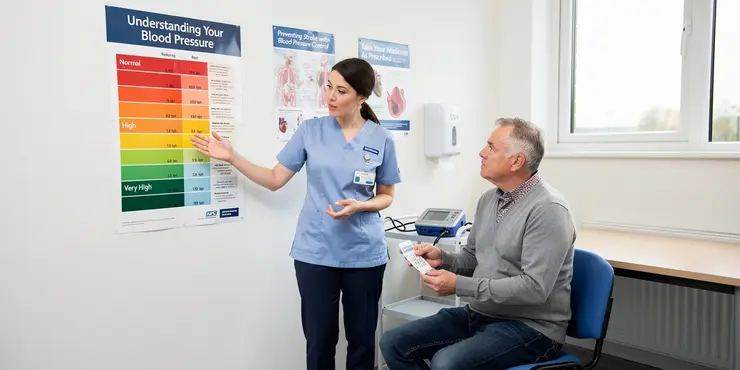
Can antihypertensive medications reduce stroke risk?
Relevance: 46%
-
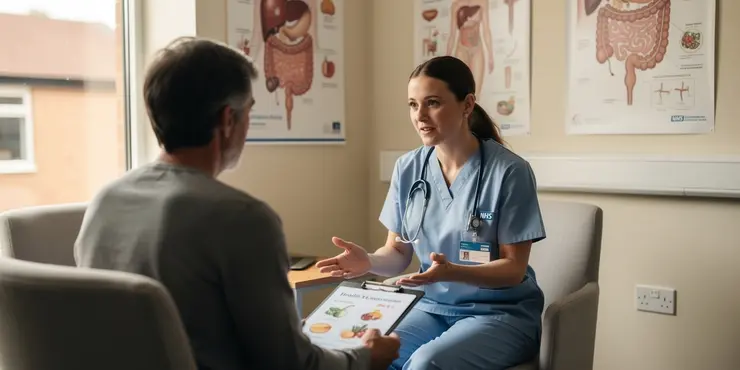
Can diet or lifestyle changes prevent appendicitis?
Relevance: 45%
-

Can lifestyle changes help prevent Super Flu?
Relevance: 45%
-
Can lifestyle changes also help prevent colorectal cancer?
Relevance: 45%
-
Can lifestyle changes help manage tinnitus?
Relevance: 44%
-
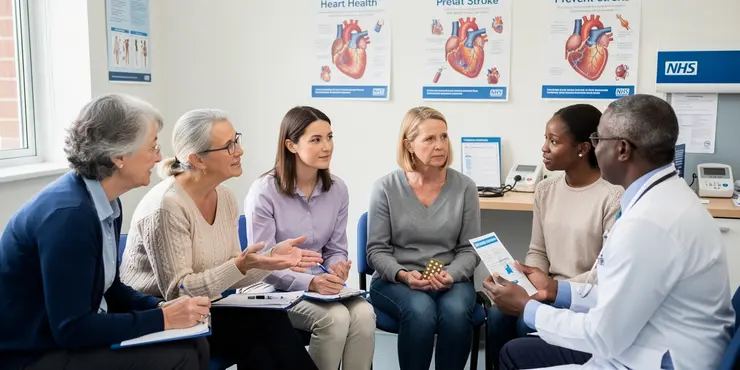
What drugs can reduce the risk of heart-attack and strokes?
Relevance: 44%
-
Can lifestyle changes help with health-related anxiety?
Relevance: 44%
-

How does Alzheimer's affect daily life?
Relevance: 44%
-
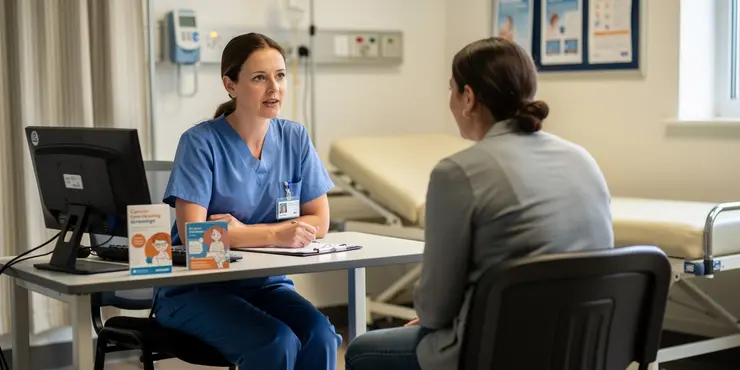
Can lifestyle changes impact the efficacy of cancer screening?
Relevance: 43%
-
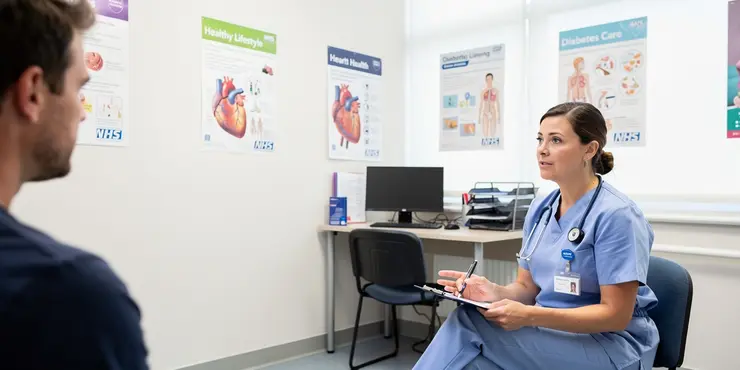
Are there any lifestyle changes that can help with hypotony?
Relevance: 43%
-

Can lifestyle changes help with postnatal depression?
Relevance: 43%
-
Can lifestyle changes help with menopause masking?
Relevance: 43%
-

Are there lifestyle changes recommended with Baxdrostat?
Relevance: 42%
-
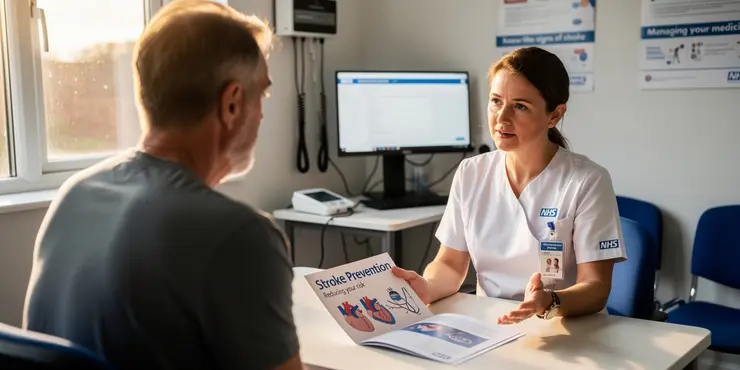
Are anticoagulants effective in reducing stroke risk?
Relevance: 42%
-

Can lifestyle changes help manage Carpal Tunnel Syndrome?
Relevance: 42%
-
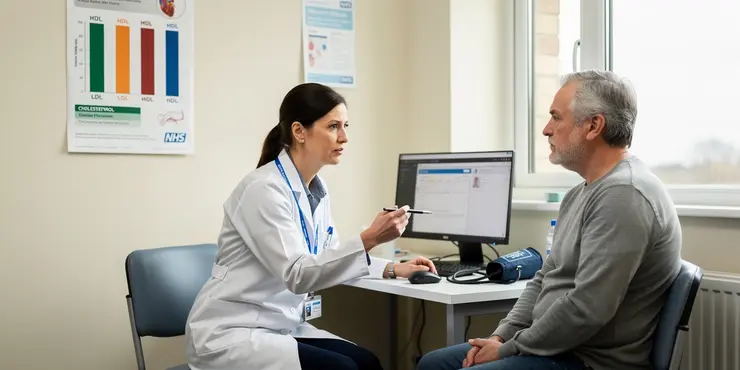
What drugs are commonly prescribed to reduce the risk of heart attacks?
Relevance: 42%
-

Can lifestyle changes complement prostate cancer treatment?
Relevance: 42%
-

Can technology aid in the care of Alzheimer's patients?
Relevance: 41%
-

How can families support a loved one with Alzheimer's?
Relevance: 41%
-

Can lifestyle changes help manage ADHD?
Relevance: 41%
-
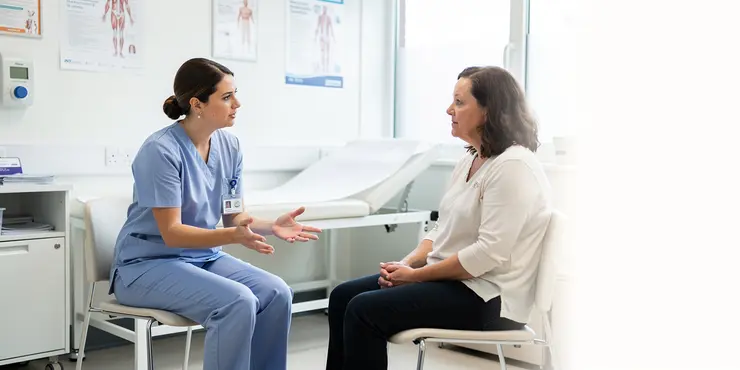
Can lifestyle changes replace the need for weight loss jabs?
Relevance: 40%
-

Do lifestyle changes need to accompany Ozempic for weight loss?
Relevance: 40%
Lifestyle Changes to Reduce the Risk of Alzheimer's
Balanced Diet
Maintaining a balanced diet is crucial for brain health. The Mediterranean diet, rich in fruits, vegetables, whole grains, fish, and olive oil, has been associated with a lower risk of developing Alzheimer's disease. Including leafy greens, berries, and nuts can provide essential nutrients such as antioxidants, vitamins, and omega-3 fatty acids that support cognitive function.
Regular Physical Activity
Engaging in regular physical activity can significantly reduce the risk of Alzheimer's. Exercise helps maintain blood flow to the brain and encourages new brain cell growth. Activities such as brisk walking, swimming, or cycling for at least 150 minutes a week are recommended. In addition to aerobic exercises, incorporating strength training can also be beneficial.
Mental Stimulation
Keeping your brain active through mental exercises can help delay the onset of Alzheimer's. Engaging in activities like reading, playing musical instruments, solving puzzles, or learning new skills stimulates neural pathways and enhances cognitive reserve. Social interactions and group activities can also provide mental stimulation.
Quality Sleep
Sufficient and regular sleep is vital for brain health. Sleep aids in the removal of toxins in the brain and the consolidation of memory. Adults should aim for seven to nine hours of quality sleep per night. Establishing a regular sleep schedule and creating a restful environment can improve sleep quality.
Managing Stress
Chronic stress can have adverse effects on the brain. Techniques such as meditation, mindful breathing, yoga, and tai chi can help manage stress levels. Staying socially connected and engaging in leisure activities can also contribute to reducing stress and improving overall mental well-being.
Avoiding Harmful Habits
Limiting alcohol consumption and avoiding smoking can significantly lower the risk of Alzheimer's. Excessive alcohol intake has been linked to cognitive decline, while smoking increases the risk of vascular issues, which can impair brain function. Opting for an overall healthy lifestyle greatly contributes to reducing risks associated with Alzheimer's.
Lifestyle Changes to Help Prevent Alzheimer's
Eat Healthy
Eating well is very important for your brain. The Mediterranean diet is good for you. It includes lots of fruits, veggies, whole grains, fish, and olive oil. This diet can help you avoid Alzheimer's disease. Leafy greens, berries, and nuts are great. They have important things like vitamins and omega-3 that help your brain stay healthy.
Exercise Regularly
Moving your body is good for your brain. Exercise keeps your brain healthy by increasing blood flow. Try activities like walking fast, swimming, or biking. Do these for at least 150 minutes each week. Doing exercises that make you stronger can help too.
Keep Your Mind Busy
Playing games and learning new things helps your brain. Try reading, playing music, solving puzzles, or learning something new. These activities keep your brain active. Spending time with friends and joining group activities are also very good for your mind.
Get Good Sleep
Sleeping well helps your brain stay healthy. Sleep cleans your brain and helps you remember things. Adults need 7 to 9 hours of sleep every night. Going to bed and waking up at the same time every day helps you sleep better.
Handle Stress
Stress is not good for your brain. Relaxation methods like meditation, taking deep breaths, yoga, or tai chi can help. Being with friends and doing fun activities is also good. These can make you feel better and less stressed.
Avoid Bad Habits
Try not to drink too much alcohol and avoid smoking. Drinking too much can hurt your brain. Smoking is bad for your blood vessels, which is not good for your brain. Choosing a healthy lifestyle helps keep your brain strong.
Frequently Asked Questions
What physical activities are recommended to reduce the risk of Alzheimer's?
Regular physical activity, such as walking, swimming, or cycling, for at least 150 minutes a week can help reduce the risk of Alzheimer's disease.
How does diet impact the risk of Alzheimer’s?
A healthy diet such as the Mediterranean diet, which is rich in fruits, vegetables, whole grains, and healthy fats like olive oil, can support brain health and reduce Alzheimer's risk.
Can mental stimulation help in reducing Alzheimer's risk?
Yes, engaging in mental activities like puzzles, learning new skills, or reading can help maintain cognitive function and potentially lower the risk of Alzheimer's.
Is there a link between sleep and Alzheimer's prevention?
Proper sleep is crucial for brain health. Aim for 7-8 hours of quality sleep per night to improve memory and reduce the risk of Alzheimer's.
How important is social interaction in reducing Alzheimer's risk?
Maintaining social connections and engaging in regular social activities can help preserve cognitive function and reduce Alzheimer's risk.
Does managing stress affect Alzheimer's risk?
Yes, chronic stress is linked to brain inflammation. Managing stress through relaxation techniques can potentially decrease the risk of Alzheimer's.
What role does alcohol consumption play in Alzheimer’s risk?
Moderate alcohol consumption, particularly wine, may have protective effects. However, heavy drinking can increase the risk of Alzheimer's.
Are smoking and Alzheimer's risk related?
Yes, smoking increases oxidative stress and inflammation, both of which are linked to an increased risk of Alzheimer's disease.
Do cardiovascular health factors impact Alzheimer's risk?
Yes, managing cardiovascular risk factors such as blood pressure, cholesterol, and diabetes can help reduce the risk of Alzheimer's.
How does head injury relate to Alzheimer's risk?
Avoiding head injuries through wearing helmets and fall-proofing the home can reduce the chance of Alzheimer's linked to traumatic brain injury.
Can keeping a healthy weight reduce Alzheimer's risk?
Maintaining a healthy weight through diet and exercise can lower the risk of Alzheimer's by promoting overall brain health.
Is there a connection between hearing loss and Alzheimer's?
Addressing hearing loss with appropriate aids can lower the risk of cognitive decline and Alzheimer's disease.
How can managing diabetes impact Alzheimer's risk?
Managing diabetes effectively with medication, diet, and exercise can help reduce the risk of Alzheimer's disease.
Can staying hydrated influence Alzheimer's risk?
Adequate hydration supports overall brain function and can help reduce cognitive decline, indirectly impacting Alzheimer's risk.
What role does lifelong learning have in reducing Alzheimer's risk?
Lifelong learning can strengthen neural networks and cognitive reserve, potentially delaying the onset of Alzheimer's symptoms.
What exercises can help avoid Alzheimer's?
Alzheimer's is a disease that affects the brain and memory. Doing exercise can help keep your brain and body healthy.
Here are some fun exercises you can try:
- Walk: Go for a nice walk every day. You can walk in your neighborhood or at a park.
- Dance: Put on your favorite music and dance. It's fun and good for you!
- Ride a bike: Riding a bike is great exercise and can be lots of fun too.
- Swim: If you like water, swimming is a good way to exercise.
- Yoga: Try some simple yoga stretches. They help you to relax and feel good.
Remember to talk to a grown-up or doctor before starting new exercises.
Use these tips to help you:
- Exercise with friends or family. It's more fun together!
- Set small goals, like walking for 10 minutes a day, and slowly do more.
- Listen to your body. Rest if you feel tired.
Doing things like walking, swimming, or bike riding can help you stay healthy. Try to do these for at least 150 minutes each week. This can help keep your brain strong and lower the chance of getting a disease called Alzheimer's.
How does food change the chance of getting Alzheimer’s?
Eating healthy food is good for the brain. The Mediterranean diet is one way to eat healthy. It has lots of fruits, vegetables, grains, and good fats like olive oil. This can help keep your brain healthy and lower the chance of getting Alzheimer's disease.
Can using your brain help stop Alzheimer's disease?
Alzheimer's disease is a brain illness that makes it hard to remember things. It can also make people feel confused. Some doctors think that using your brain might help. This means things like reading, playing games, or learning new stuff.
These brain activities are like exercise for your brain. Just like moving your body keeps you fit, using your brain keeps it strong too. You can read a book, play puzzles, or try to remember a song.
If you have trouble reading or understanding, you can ask someone for help. They can read with you. There are also audiobooks, so you can listen to stories instead of reading.
Using your brain a little every day can be fun and helpful!
Yes, doing activities like puzzles, learning new things, or reading books can help keep your brain healthy. This might also help lower the chance of getting Alzheimer's disease.
Can sleep help stop Alzheimer's?
Sleeping well might help keep your brain healthy. This could stop diseases like Alzheimer's.
Try to get a good night's sleep. You can do this by:
- Going to bed at the same time every night.
- Making your bedroom quiet and dark.
- Not using phones or tablets before bed.
- Trying relaxing activities, like listening to soft music.
These steps might help you sleep better, which is good for your brain.
Good sleep is very important for your brain. Try to sleep 7-8 hours every night. This helps your memory and keeps your brain healthy.
How can spending time with people help lower the chances of getting Alzheimer's?
Spending time with family and friends can help keep your brain healthy. It may lower the chance of getting a disease called Alzheimer's. This is when people have trouble remembering things.
What can you do?
- Join a club or group to meet new people.
- Talk to friends and family often, even on the phone or video call.
Tools to help:
- Use social media apps to keep in touch with loved ones.
- Try apps that help you remember to call or visit friends.
Being with others can make your brain and your heart happy!
Being with friends and doing fun things together can help your brain stay healthy. It can also lower your chances of getting Alzheimer's disease.
Can managing stress help with the risk of Alzheimer's?
Alzheimer's is a sickness that makes it hard to remember things. Stress is when you feel worried or tense. Can doing things to feel less stressed help protect your brain from Alzheimer's?
Simple ways to feel less stressed are taking deep breaths, doing calming activities like drawing or listening to music, and talking to someone you trust. These can all be good for your brain.
Ask your doctor or a healthcare professional for tips on staying healthy and managing stress.
Yes, being stressed all the time can make your brain swell up. Learning to relax can help lower the chance of getting a brain disease called Alzheimer's.
How does drinking alcohol affect the risk of Alzheimer's?
Drinking alcohol can change your risk of getting Alzheimer's. Alzheimer's is an illness that makes people forget things and have trouble thinking. It's important to be careful with alcohol. Drinking too much is not healthy for your brain.
If you have questions, you can talk to a doctor. They are there to help you understand more. You can also use pictures or charts to help explain things.
Drinking a little bit of alcohol, like wine, might be good for you. But drinking too much alcohol can make it more likely to get Alzheimer's disease, which is a sickness that affects the brain.
Does smoking make Alzheimer's worse?
Smoking can hurt your brain. It can make it easier to get Alzheimer's.
If you have questions or need help, ask a doctor or a trusted adult.
Yes, smoking is bad for the body. It can cause damage and make the body swell up inside. These things can make it more likely to get a sickness called Alzheimer's disease, which affects the brain.
Do heart health problems affect the chance of getting Alzheimer's?
Alzheimer's is a disease that affects the brain. It makes it hard to remember things.
Having a healthy heart is very important. It helps in keeping the brain healthy too.
Eating healthy food, exercising, and avoiding smoking can help keep your heart strong.
Using big, colorful pictures can help you learn better.
Try to read a little bit at a time and take breaks. It can be easier to remember that way.
Ask a friend or family member to read with you. They can help explain big words.
Yes, looking after your heart health by keeping your blood pressure, cholesterol, and diabetes in check can help lower the chances of getting Alzheimer's disease.
Does a hit on the head make it more likely to get Alzheimer's?
A hit on the head can hurt your brain. This might make it more likely to get a memory problem called Alzheimer's when you are older. But not everyone with a head injury will get Alzheimer's.
If you have questions, talk to a doctor. They can help explain more.
Here are some things that can help:
- Ask someone to read this with you.
- Use pictures or drawings to understand better.
- Take your time to read slowly.
Wearing helmets and making your home safe can help prevent head injuries. This can lower the risk of memory problems like Alzheimer's that happen after a bad head bump.
Can staying at a healthy weight lower the chance of getting Alzheimer's?
Eating healthy food and getting exercise can help you stay at a good weight. This can make your brain stay healthy and might stop you from getting a disease called Alzheimer's.
Does losing your hearing have anything to do with Alzheimer's?
Using the right hearing aids can help keep your brain healthy and lower the chances of getting diseases like Alzheimer's.
Does taking care of diabetes change the chance of getting Alzheimer's?
Taking care of diabetes by using medicine, eating healthy food, and doing exercise can help lower the chance of getting Alzheimer's disease.
Does drinking water affect the chance of getting Alzheimer's?
Drinking enough water is good for your health.
It may help lower the risk of Alzheimer's.
Try to drink water every day.
Using a water bottle can remind you to drink.
Drinking enough water is good for your brain and can help keep it working well. It might also help lower the chance of getting Alzheimer’s disease.
How can learning new things help with Alzheimer's?
Learning new things all the time can help your brain stay healthy. It can lower the chance of getting Alzheimer's, which is a disease that affects memory.
Try to read books, do puzzles, or learn a new skill. These things make your brain work hard and stay strong.
Ask someone to help you or use a computer to learn new things. This can make learning easier and more fun.
Learning new things all your life can help keep your brain strong. It might also help you stay healthy as you get older. This could make it take longer for signs of memory problems, like Alzheimer's, to start.
Here are some tips to help with learning:
- Play games that make you think, like puzzles.
- Try to read a little bit every day.
- Learn something new, like a hobby or a skill.
- Talk to friends and family often.
Useful Links
This website offers general information and is not a substitute for professional advice.
Always seek guidance from qualified professionals.
If you have any medical concerns or need urgent help, contact a healthcare professional or emergency services immediately.
Some of this content was generated with AI assistance. We’ve done our best to keep it accurate, helpful, and human-friendly.
- Ergsy carfully checks the information in the videos we provide here.
- Videos shown by Youtube after a video has completed, have NOT been reviewed by ERGSY.
- To view, click the arrow in centre of video.
- Most of the videos you find here will have subtitles and/or closed captions available.
- You may need to turn these on, and choose your preferred language.
- Go to the video you'd like to watch.
- If closed captions (CC) are available, settings will be visible on the bottom right of the video player.
- To turn on Captions, click settings .
- To turn off Captions, click settings again.
More Items From Ergsy search
-

Are there any lifestyle changes that can help reduce the risk of Alzheimer's?
Relevance: 100%
-

Can lifestyle changes help reduce bowel cancer risk?
Relevance: 68%
-

Who is at risk of developing Alzheimer's disease?
Relevance: 67%
-

Can lifestyle changes during menopause help reduce dementia risk?
Relevance: 65%
-

What is Alzheimer's disease?
Relevance: 60%
-

What causes Alzheimer's disease?
Relevance: 59%
-

Can lifestyle changes reduce the need for medication for heart disease prevention?
Relevance: 57%
-

Can Alzheimer's disease be prevented?
Relevance: 56%
-

What role does genetics play in Alzheimer's disease?
Relevance: 51%
-

What lifestyle changes can help lower the risk of bowel cancer?
Relevance: 51%
-

How is Alzheimer's disease diagnosed?
Relevance: 50%
-

How common is Alzheimer's disease in the UK?
Relevance: 50%
-

What lifestyle changes can help manage thrombosis risk?
Relevance: 49%
-

What are the stages of Alzheimer's disease?
Relevance: 49%
-

What treatments are available for Alzheimer's disease?
Relevance: 47%
-
What lifestyle changes can lower my child's risk of type 1 diabetes?
Relevance: 47%
-

Can lifestyle changes help prevent testicular cancer?
Relevance: 46%
-

What are the symptoms of Alzheimer's disease?
Relevance: 46%
-

Can antihypertensive medications reduce stroke risk?
Relevance: 46%
-

Can diet or lifestyle changes prevent appendicitis?
Relevance: 45%
-

Can lifestyle changes help prevent Super Flu?
Relevance: 45%
-
Can lifestyle changes also help prevent colorectal cancer?
Relevance: 45%
-
Can lifestyle changes help manage tinnitus?
Relevance: 44%
-

What drugs can reduce the risk of heart-attack and strokes?
Relevance: 44%
-
Can lifestyle changes help with health-related anxiety?
Relevance: 44%
-

How does Alzheimer's affect daily life?
Relevance: 44%
-

Can lifestyle changes impact the efficacy of cancer screening?
Relevance: 43%
-

Are there any lifestyle changes that can help with hypotony?
Relevance: 43%
-

Can lifestyle changes help with postnatal depression?
Relevance: 43%
-
Can lifestyle changes help with menopause masking?
Relevance: 43%
-

Are there lifestyle changes recommended with Baxdrostat?
Relevance: 42%
-

Are anticoagulants effective in reducing stroke risk?
Relevance: 42%
-

Can lifestyle changes help manage Carpal Tunnel Syndrome?
Relevance: 42%
-

What drugs are commonly prescribed to reduce the risk of heart attacks?
Relevance: 42%
-

Can lifestyle changes complement prostate cancer treatment?
Relevance: 42%
-

Can technology aid in the care of Alzheimer's patients?
Relevance: 41%
-

How can families support a loved one with Alzheimer's?
Relevance: 41%
-

Can lifestyle changes help manage ADHD?
Relevance: 41%
-

Can lifestyle changes replace the need for weight loss jabs?
Relevance: 40%
-

Do lifestyle changes need to accompany Ozempic for weight loss?
Relevance: 40%


